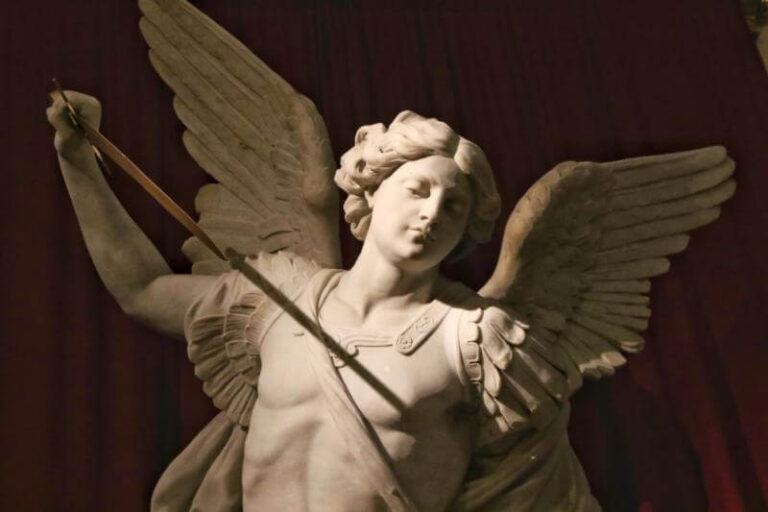Q. I am not a Christian, but I enjoy reading your column and learn a lot from it. I am hoping that you can explain why St. Michael the Archangel is regarded as a saint. I have always been under the impression that a saint is a deceased believer who is recognized by the Catholic Church after the process of canonization. But Archangel Michael has never been human, right? (Jefferson City, Missouri)
A. In the contemporary church, what you have said is true: A saint is a believer who, after a lengthy investigation, is formally declared by the Vatican to have reached heaven and to be worthy of veneration. But in the early centuries, there was no such formal process.
The first saints were martyred for their faith during the Roman persecutions, and Christians began spontaneously to honor their memory and to commemorate annually the dates on which they had died. It was only in the 12th century, under Pope Alexander III, that the process of canonization became centralized in Rome.
St. Michael, as you point out, was never a human being. Like the other angels, he was created by God as a pure spirit — with intellect and will, but no physical body. The word “saint,” though, is derived from the Latin meaning “one who is holy,” and the holiness of Michael has long been recognized by the church.
Michael is one of the three angels mentioned by name in the Scriptures — the others being Raphael and Gabriel. In Chapter 12 of the Book of Revelation, Michael is portrayed as leading the faithful angels in defeating the hosts of evil and driving them out of paradise. He has thus been revered in Catholic tradition as the protector of the church. As early as the fourth century, Christian churches were dedicated to St. Michael, and since the ninth century his feast day has been celebrated in the church’s liturgy on September 29.
Q. My father died earlier this week, and his body has been cremated. He loved his cats, and a few years ago he told me that he wanted me to scatter his ashes in the backyard where his cats are buried, so that he could be with them. The problem is that, although he was not a Catholic (an avowed atheist, in fact), I am. So would it be a sin for me to honor his request? (Carrollton, Georgia)
A. In October 2016, the Vatican clarified that the remains of the deceased should be treated with respect and laid to rest in a consecrated place. That teaching is based on the church’s belief that the human body constitutes an essential part of a person’s identity and will one day be reunited with the soul.
This Vatican’s instruction simply reinforced what had already been the Catholic Church’s position. (In 1997, an appendix to the church’s Order of Christian Funerals had explained that “the practice of scattering cremated remains on the sea, from the air, or on the ground, or keeping cremated remains in the home of a relative or friend of the deceased are not the reverent disposition that the church requires.”)
But your father, as a non-Catholic, was not bound by the church’s guidelines; nor would I imagine that he meant his wish as a public repudiation of the church’s belief in a bodily resurrection. So I would say that you are free to honor his wishes. (And I know that, when you visit his backyard, you will remember to pray for your father’s eternal happiness in the company of the Lord.)
Copyright ©2018 Catholic News Service/U.S. Conference of Catholic Bishops.


